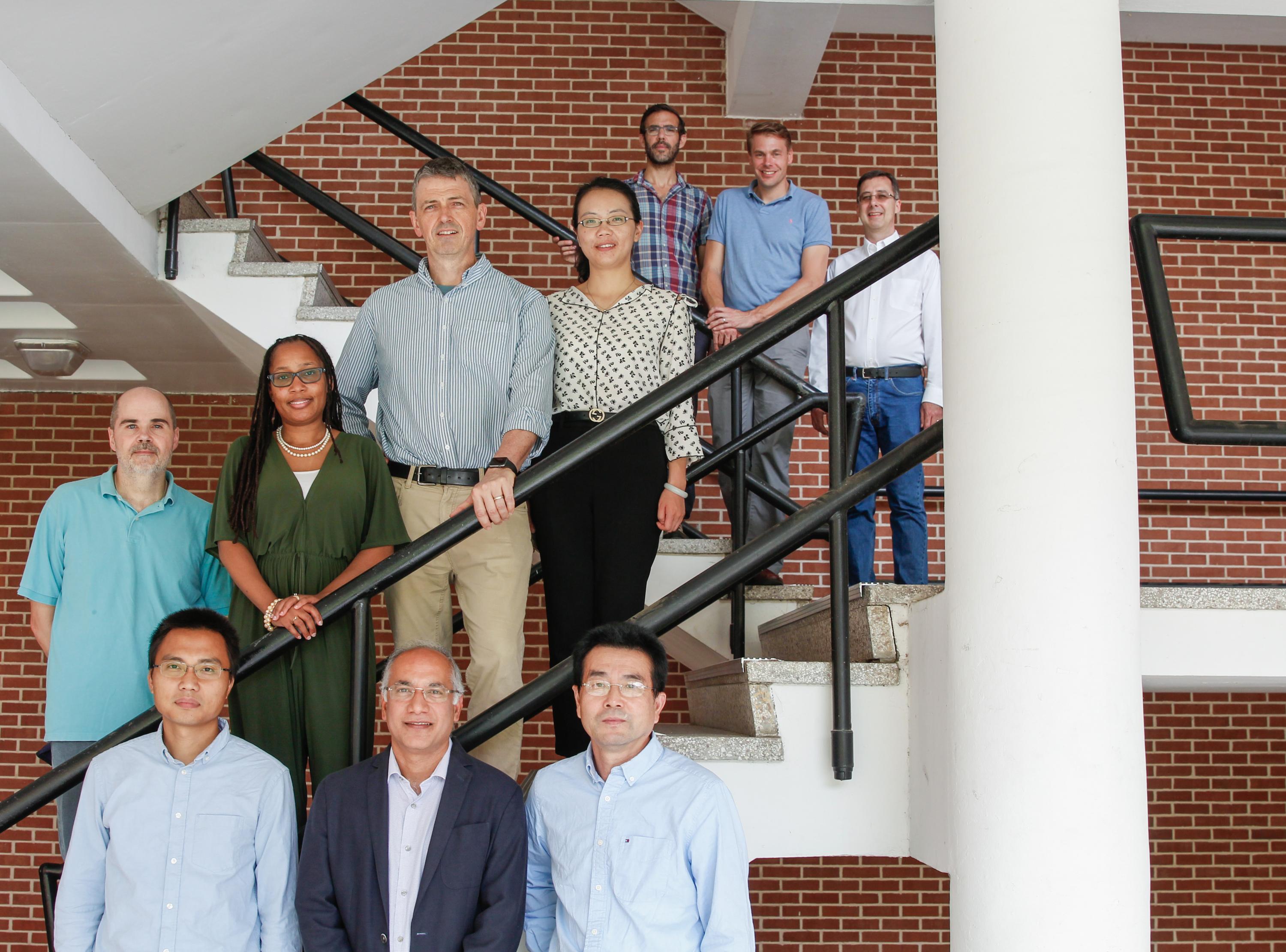Data, data, and more data.
The rapid growth of data seems wild and limitless. But various Transdisciplinary Research in Principles of Data Science (TRIPODS) institutes have been making theoretical sense of it.
TRIPODS institutes receive funding from the National Science Foundation (NSF). Among them is Georgia Tech’s TRIAD – the Transdisciplinary Research Institute for Advancing Data Science, which is directed by Stewart School of Industrial and Systems Engineering Professor Xiaoming Huo. TRIAD researchers are poised to share data science insights with the Atlanta higher education community.
Meanwhile, NSF aims to expand the scope of TRIPODS institutes. Today the agency awarded 19 collaborative projects at 23 universities. The awards are called TRIPODS+X grants. X is the scope-expanding activity; it could be research, visioning, or education.
Among the award recipients is Georgia Tech’s project: TRIPODS+X:EDU Collaborative Education: Data-driven Discovery and Alliance, led by Prasad Tetali, a professor of mathematics and computer science at Georgia Tech.
The award to Georgia Tech and its alliance partners – Agnes Scott, Morehouse, and Spellman Colleges – aims to train a diverse workforce for the inevitable data-driven future. The project will also engage faculty at the minority-serving institutions to help them teach data science and develop related curricula.
"TRIPODS+X is exciting not only for its near-term impact addressing some of society's most important scientific challenges, but [also] because of its potential for developing tools for future applications," says Anne Kinney, NSF assistant director Mathematical and Physical Sciences.
With the $200,000 TRIPODS+X:EDU grant, the alliance partners will develop undergraduate data-science-focused courses. Through boot camps, workshops, and other joint activities, they will prepare data science modules to integrate into science curricula at the partner institutions. The goal is to prepare students who can address the emerging challenges in data science.
“The NSF-supported educational alliance is exciting in many ways,” says Prasad Tetali.
“It gives an opportunity to infuse the foundational data science curriculum with real-world applications from the physical and life sciences,” Tetali says. “It will also likely catalyze collaborative research in data science and related fields between Georgia Tech and Atlanta area colleges.”
Following are the individuals involved in the TRIPODS+X: EDU project:
Principal Investigators
- Chris DePree, Agnes Scott College
- Alan Koch, Agnes Scott College
- Wenjing Liao, Georgia Tech School of Mathematics
- Brandeis Marshall, Spelman College
- Chuang Peng, Morehouse College
- David Sherrill, Georgia Tech School of Chemistry and Biochemistry
- Prasad Tetali, Georgia Tech School of Mathematics and School of Computer Science
- Joshua Weitz, Georgia Tech School of Biological Sciences
Senior Personnel
- Thinh Doan, Georgia Tech School of Electrical and Computer Engineering
- Flavio Fenton, Georgia Tech School of Physics
- Xiaoming Huo, Georgia Tech Stewart School of Industrial and Systems Engineering
- Renata Rawlings-Goss, Georgia Tech Institute for Data Engineering and Science
- Justin Romberg, Georgia Tech School of Electrical and Computer Engineering
Photo Caption
From left to right, top row: Joshua Weitz, Justin Romberg, and David Sherrill; middle row: Alan Koch, Brandeis Marshall, Chris DePree, and Wenjing Liao; bottom row: Thinh Doan, Prasad Tetali, and Chuang Peng
For More Information Contact
A. Maureen Rouhi, Ph.D.Director of Communications,College of Sciences
Joshua ChamotPublic Affairs Specialist for Mathematical and Physical SciencesNational Science FoundationOffice of Legislative and Public Affairs(703) 292-4489jchamot@nsf.govhttps://twitter.com/NSF_MPShttps://www.facebook.com/US.NSF/
